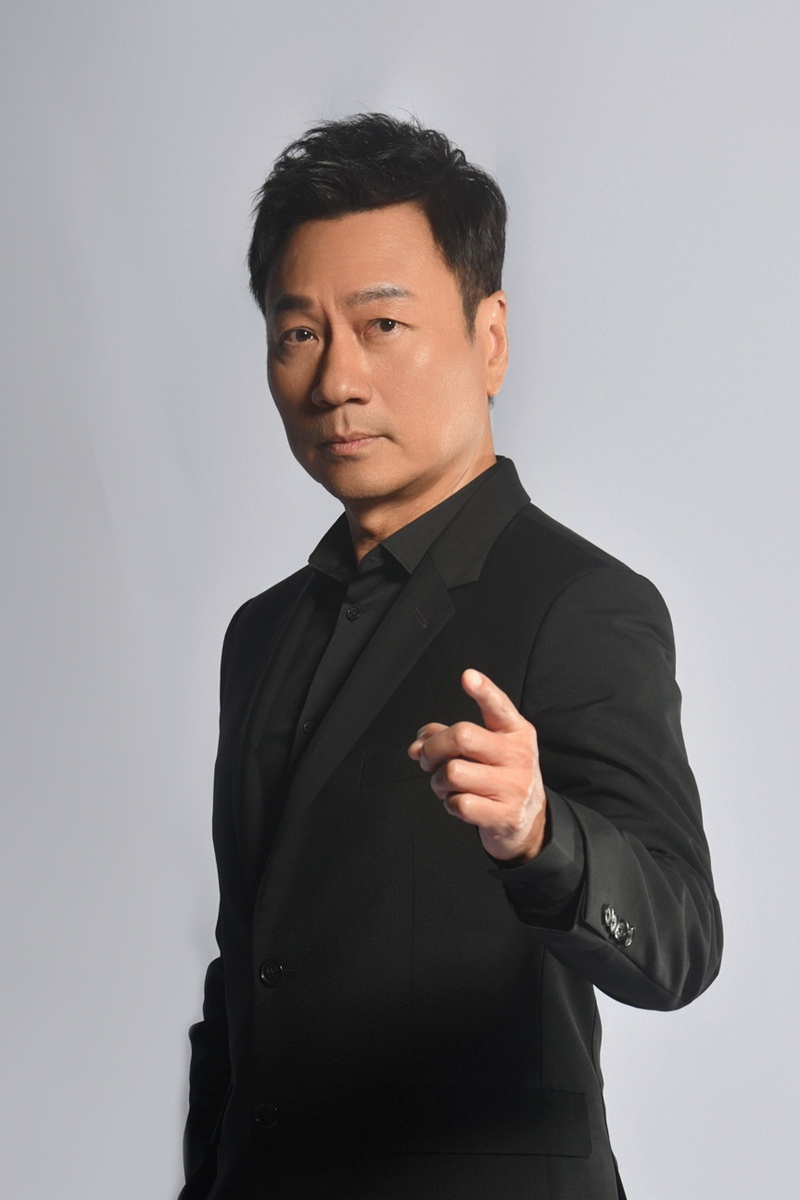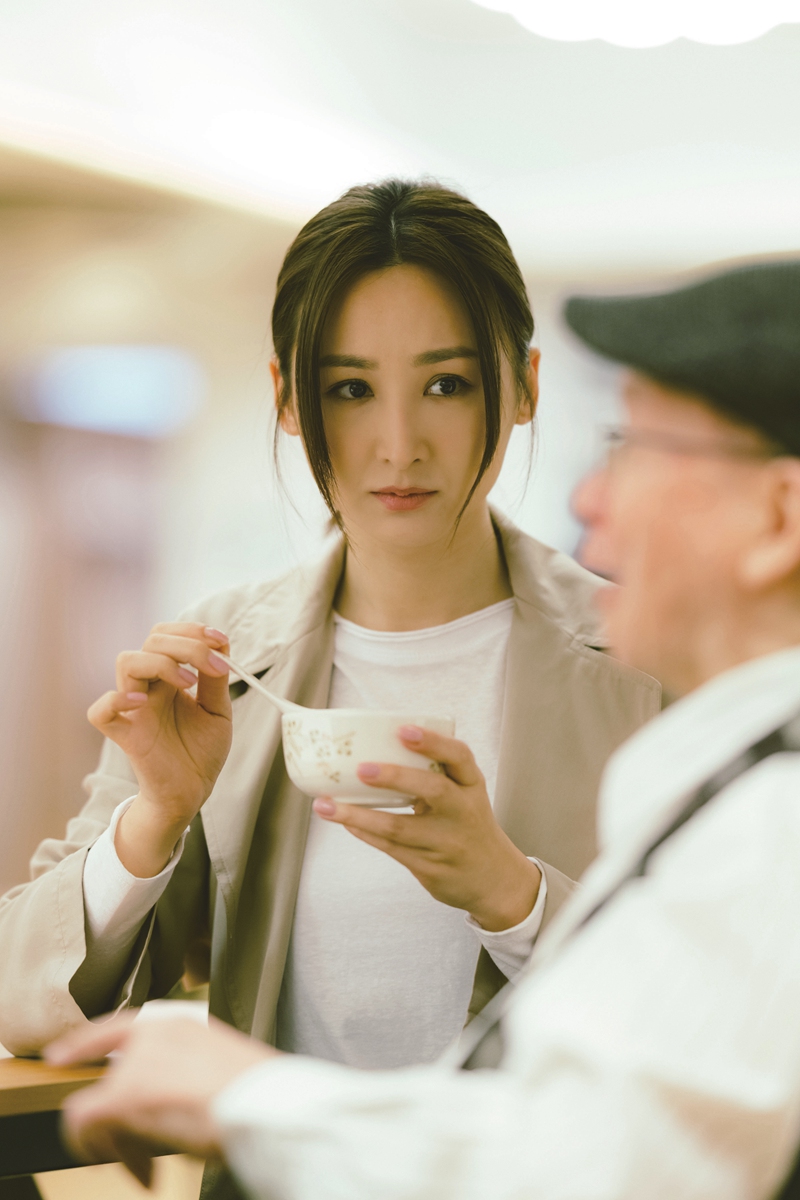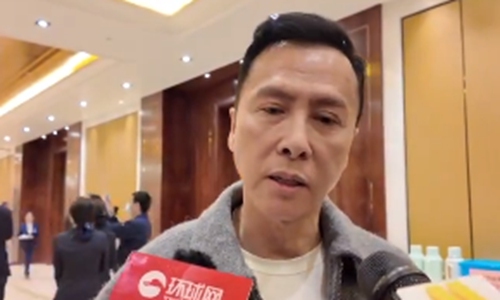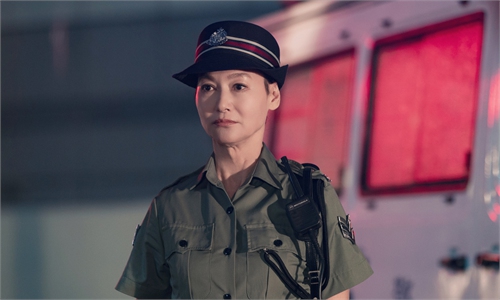ARTS / CULTURE & LEISURE
HK stars relish popularity brought by ever closer bond with mainland

TVB actor Wayne Lai Photo: Courtesy of TVB
In 2023, The Queen of News became one of the most beloved dramas among Chinese audiences. Social media platforms were abuzz with discussions about the plot, actors, and even the personalities and fashion of the characters.
It was a production by a Hong Kong-based television.
Twenty-seven years after Hong Kong returned to the motherland, cooperation in the TV industry between the city and the mainland is expanding.
From classic adaptations of works like The Return of the Condor Heroes by Louis Cha Leung-yung, more widely known by his pen name Jin Yong, to mythological series such as Journey to the West, classic police dramas like Forensic Heroes, and workplace drama The Queen of News, Hong Kong Television Broadcasting Company's (TVB) dramas consistently demonstrate their rich production value across various genres in the industry.
During interviews with the Global Times, TVB actors Wayne Lai, Samantha Ko and Rosina Lam shared their personal experiences regarding the development of Hong Kong television dramas over the past years, the exchange between the film and television industries of the Chinese mainland and Hong Kong, and the differences in filming and production between the two regions.
More opportunities
Wayne Lai, a veteran TVB actor, has witnessed the changes in Hong Kong's film and television industry since 1997. His notable roles include Zhou Botong in The Return of the Condor Heroes in 1994 and Zhu Bajie in Journey to the West in 1996. In 2019, he appeared in the mainland drama Legend of the Phoenix.
"I think the last 20 years have seen significant growth in both TV and film because the mainland market is so large. The openness of the market has allowed more of Hong Kong's works to reach mainland audiences, providing us with more job opportunities," Lai told the Global Times.
"With the support of our motherland, I believe all industries in Hong Kong, especially the entertainment industry, will develop rapidly," he noted.
Reflecting on the golden era of TVB in the 1980s and 1990s, Lai believed that it was a cherished period for many mainland viewers who grew up watching TVB dramas.
He mentioned that sometimes when filming in the mainland, many people tell him they grew up watching his dramas, which makes him feel particularly "close" to them. "For TVB and TVB's artists, mainland audiences feel like family."
Lai told reporters that when filming in the mainland, there are generally more people involved and with higher efficiency.
"And there's a significant difference between the mainland and Hong Kong about filming. In the mainland, whether it's studio sets or outdoor locations, many places that are hard to find in Hong Kong are readily available," he said.
However, Lai noted that because Hong Kong's film and television industry developed earlier, there is a lot to gain from the cultural exchange between the two regions. He believes that by blending the best aspects from both sides, mutual growth can be achieved.

Actress Samantha Ko Photo: Courtesy of TVB
Recapturing childhood flavors
In The Queen of News, actress Samantha Ko plays the ambitious character Hui Sze-Ching (Cathy), a role that has garnered much love from viewers, including those from the mainland.
"When I asked viewers why they liked Cathy, they said she is capable and ambitious, with qualities they aspire to have. So, I think people love her because she represents who they want to become," Ko told the Global Times.
This year, the much-anticipated sequel The Queen of News 2 is scheduled to start filming with the original cast. Ko admitted she is not yet aware of the plot details, but like other audiences, she is eagerly "anticipating" it.
Since her breakout role as Cathy grew in popularity, she has received many scripts from mainland directors, most of which are for roles similar to Cathy.
"This might be one of the differences between film and television in the two places. Hong Kong directors prefer to let actors try many different types of things," she explained. "For example, if you have short hair, they might ask you to grow it out to see another side of you."
Ko told the Global Times that her many years of acting experience in Hong Kong have made her "quite adaptable" when filming.
Ko is also active on mainland social media platforms like Douyin, and lifestyle-sharing platform Xiaohongshu, where her down-to-earth personality has earned her a large fanbase.
Born to a Nanjing mother, Ko spent part of her childhood with her grandmother in Nanjing before moving to Hong Kong with her parents and becoming an actress. According to Ko, she often visits her hometown, marveling at its rapid development and reminiscing about the flavors of her youth.
"Every time I go back, I try to find the tastes of my childhood, like a noodle shop by the railway. I always ask relatives if it has moved and where I can find it," she said.

Actress Rosina Lam Photo: Courtesy of TVB
'Important, beautiful period'Young actress Rosina Lam has deep ties to the mainland. A graduate of the Central Academy of Drama, she recalled her days living in a basement in Beijing as a student, much like many "bei piao," or "Beijing drifters," a term used to describe people outside Beijing who come to the city to seek a living or success.
"I once lived in a basement because rent was expensive and my stay was short. At that time, I spent two days decorating my small room with wallpaper, lights, and curtains," she reflected.
Having come from the southern part of China, Lam said she had to work hard on her pronunciation while being a student, practicing tirelessly to perfect her lines. "Others might need 20 or 30 tries, but I might need 100. This period was very important and beautiful for me," she said.
Lam also highlighted differences in training between TVB and mainland institutions. TVB's artist training programs offer hands-on experience, while mainland graduates often need to audition for roles independently, which also "builds resilience." "I believe actors need life experiences to enhance their performances."
Lam's upcoming drama, Black Moonlight, a co-production between the Chinese mainland and Hong Kong, has her playing the role of Zhuo Huiyun. During her free time, she also enjoys watching mainland dramas such as A Dream of Splendor and Blossoms Shanghai. Every year, TVB purchases some high-quality mainland dramas.
"These are excellent productions, outstanding in terms of costumes, scripts, direction, and acting," she said.
"Such cultural exchanges allow us to appreciate more mainland works while mainland audiences gain access to Hong Kong productions."


